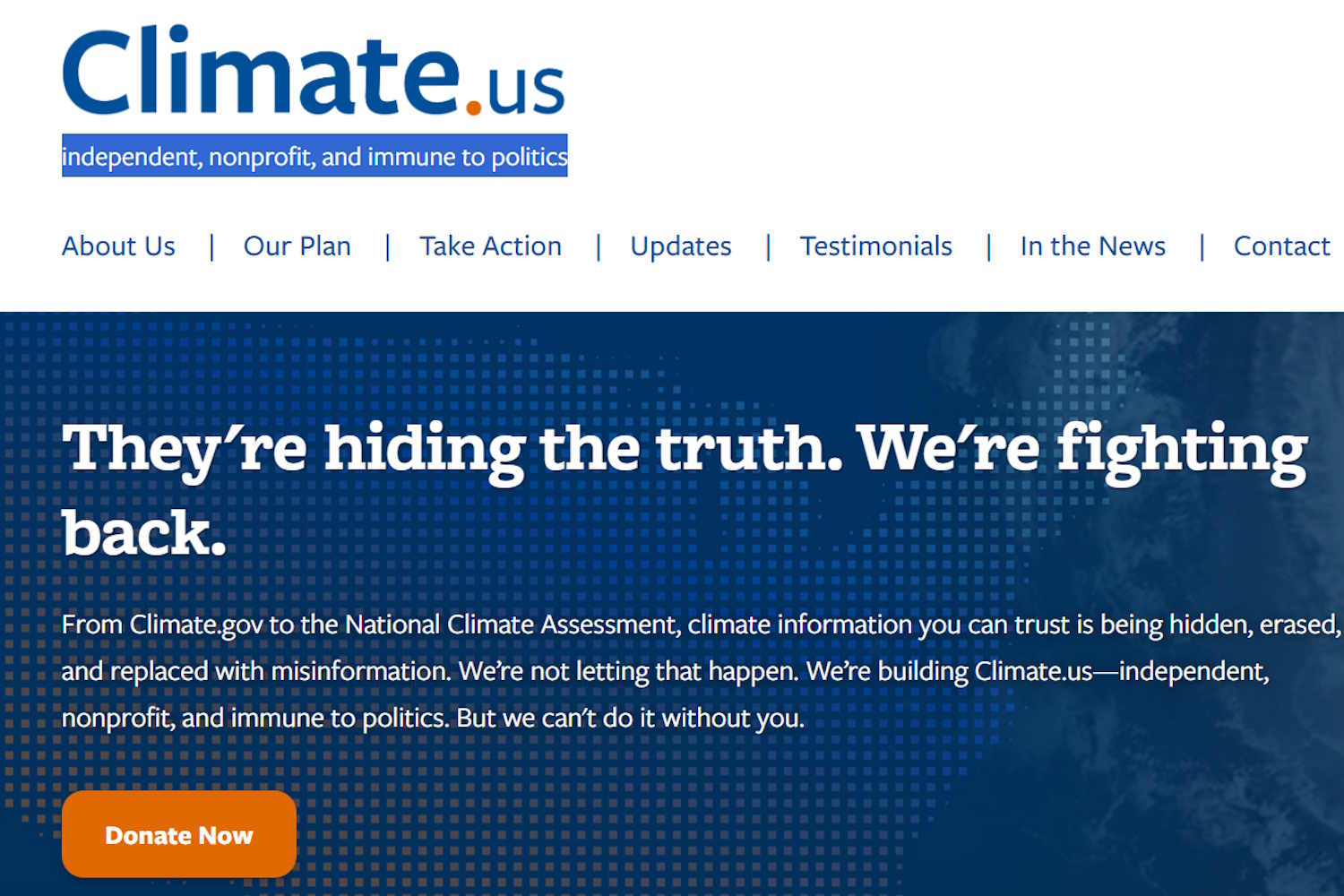Donald Trump shut down climate.gov and fired its team, but former editor Rebecca Lindsey launched climate.us to keep climate data alive. The crisis, meanwhile, isn’t slowing down.

@climate.us/
Just before summer, Donald Trump’s administration pulled the plug on climate.gov, the public NOAA website that had explained climate science to Americans for years. Along with shutting down access, the White House dismissed nearly the entire editorial staff, starting with editor-in-chief Rebecca Lindsey.
But Rebecca refused to walk away. Determined to keep the public informed about global warming, she gathered a group of former colleagues and scientists under a nonprofit banner and launched a new site. That project became climate.us, which describes itself as “independent, nonprofit, and immune to politics.” The site not only republishes data erased from government pages but also offers practical tools—from flood-risk mapping to climate literacy programs for local governments and communities.
A sharp break from biden’s climate agenda
Trump has never hidden his hostility toward climate policy. During his first term, he pulled the United States out of the Paris Agreement, and he’s now repeated the move. More recently, he declared an “energy emergency” to boost oil and gas production, lifting restrictions on offshore drilling and opening federal lands—including protected areas in Alaska—to extraction.
The effect was immediate: a sharp U-turn from Biden’s push for renewables and emissions cuts, back to fossil fuels as the cornerstone of U.S. energy policy. For industries eager for deregulation, it was a victory. For climate scientists, a devastating setback.
When the data disappears
The truth is that the climate crisis doesn’t pause for politics. Floods, heatwaves, flash floods, and entire regions abandoned by insurers continue whether the data is online or not. When an official channel goes dark, others open. When a database is erased, scientists and activists rebuild it and share mirrored versions.
As Lindsey and her colleagues demonstrate, censorship may be loud, but the climate crisis is relentless. We can—and should—protest the silencing of a site. Yet if we stop there, if we don’t return to the core mission of data, services, and decision-making, we’re wasting time the planet cannot spare. Climate doesn’t wait for bureaucracy—or for politicians’ egos.
Sources: climate.us / The Guardian
